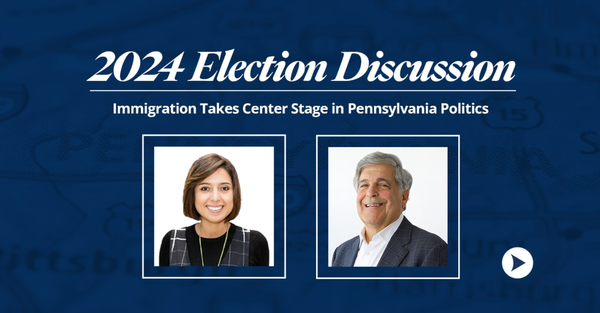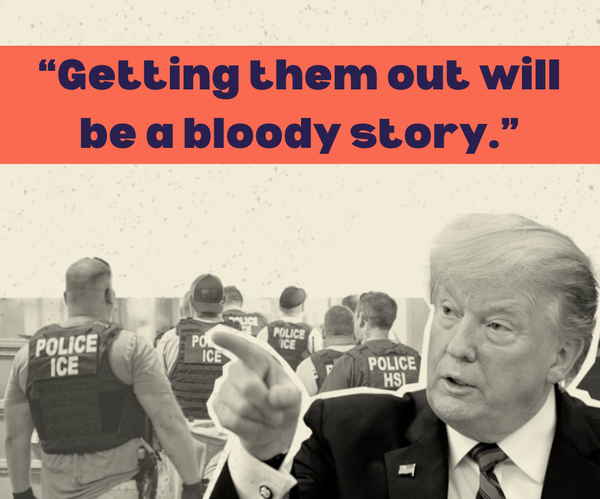Streamlining Access to Work Visas for U.S. College Graduates

Mariah Ferguson, Policy Advocacy Associate at the Immigration Hub
The Biden-Harris administration is strongly committed to protecting DACA recipients and Dreamers, allowing homegrown talent to realize their potential in the United States. Less than 30 days after the administration’s announcement that they would ease the work visa process for DACA recipients and other Dreamers, the Department of State updated guidance to consular officers in the Foreign Affairs Manual (FAM) to begin implementing this measure. The FAM update is a significant step in allowing DACA recipients and Dreamers to more quickly receive work visas if they’ve earned a degree at an accredited U.S. college or university, and have received an offer of employment from a U.S. employer, giving recipients the chance to support the economy and their communities.
What is the D-3 Waiver and Why Does the Current Process Need to Be Fixed?
In many cases, DACA holders and Dreamers who have graduated from American colleges and universities with degrees in certain professions may already access certain high-skill employment visas. Those who need to address certain grounds of inadmissibility like unlawful presence may apply to waive those concerns by filing an “Application for Waiver on Grounds of Inadmissibility,” or a so-called “D-3 waiver.” To complete this process, DACA recipients and Dreamers must exit the U.S., apply for the D-3 waiver at a U.S. consulate, and be granted the waiver before they can pursue a skilled work visa. The waiver is granted on a discretionary basis by a consular officer, who considers the inadmissibility factors against social and humanitarian factors.
The issue is that current wait times for decisions on a D-3 waiver can take up to 4-6 months, and can be even longer, resulting in uncertainty for skilled immigrant workers and their employers. The executive action seeks to inject more certainty into this process, and help significantly cut wait times outside the United States, which in turn should make pursuing work visas a more viable pathway to DACA recipients and Dreamers with a U.S. college degree and a job offer in specific fields.
What does the recent announcement on the D-3 Waiver do?
The change aims to streamline the waiver application process in important ways. First, to have the D-3 waiver approved, the applicant must show that they will have a “positive effect” on the U.S. public interest. With the change to the FAM, those applicants with degrees from U.S. universities will be assumed to have a “positive effect,” on the public interest if they have an employment offer in a field that would make them eligible for a work visa. Second, consular officers are also now encouraged to recommend expedited review for these types of cases, further speeding up the process.
Who Is Helped by the D-3 Waiver Executive Action?
Streamlining the D-3 waiver process will help DACA recipients and Dreamers with degrees from accredited U.S. institutions of higher education who have a job offer from an employer in the U.S. in a select field that is visa-eligible. There are around 408,000 undocumented students enrolled in U.S. colleges and universities, plus an unknown number of undocumented individuals who have a college education. It could help people like Sebastian Melendez, a DACA recipient with a nursing degree, who has faced the ongoing threat of possible deportation as DACA winds its way through the courts. Melendez, who was brought to the U.S. by his parents when he was an infant, said that “it would be incredible to have this employment visa solution, rather than a status that has been dangling by a thread.” For Melendez, who has bought a car, rents his own apartment, and makes enough money to assist his parents, accomplishments that could be taken away if his work authorization isn’t renewed timely, or if DACA is struck down by the courts, the D-3 waiver offers a path to stability, and potentially citizenship.
Companies have also praised the executive action on the D-3 waiver, with Jack Chen, Microsoft’s associate general counsel saying that the administration’s actions benefiting Dreamers are “much needed options for people who have only known the U.S. as home.” The streamlined D-3 waiver process will benefit companies that employ immigrants, and the U.S. labor force at large, by removing some of the uncertainty around visa processing, and making employers more comfortable offering visas to immigrant workers.
What More Can Be Done to Help Those Applying for Non-Immigrant Visas?
The recent announcement is an important first step toward improving access to certain employment visas for DACA holders and Dreamers who have earned college degrees in the United States. The administration should build on these efforts by:
- Ensuring that all agencies involved in the D-3 waiver process – in particular U.S. Customs and Border Protection, given its critical function – have issued public facing guidance to staff concerning their role in the implementation of the new FAM Guidance.
- Making additional updates to the FAM to clarify and harmonize certain nonimmigrant visa (NIV) requirements, like temporary intent and foreign residency, across all categories of work visas. This could enhance access to a broader range of NIVs, including the TN visa, which could provide an important option for many DACA holders.
- Move quickly to finalize its proposed rule to Modernize the H-1B Specialty Occupation Worker Program, which it announced in October 2023. This rule, among other things, would provide greater flexibility to cap-exempt nonprofit and governmental organizations to hire and retain staff, including those who are DACA holders.




